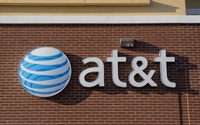AT&T Must Face Lawsuit For Throttling Users
- by Wendy Davis @wendyndavis, March 31, 2015
 In a blow to
AT&T, a federal judge ruled on Wednesday that the Federal Trade Commission is entitled to continue pursuing a lawsuit against the company for allegedly throttling people who have unlimited-data
plans.
In a blow to
AT&T, a federal judge ruled on Wednesday that the Federal Trade Commission is entitled to continue pursuing a lawsuit against the company for allegedly throttling people who have unlimited-data
plans.
U.S. District Court Judge Edward Chen in the Northern District of California rejected AT&T's argument that the new net neutrality rules -- which classify mobile broadband as a common-carrier service -- strip the FTC of authority to proceed.
“When this suit was filed, AT&T’s mobile data service was not regulated as common carrier activity by the Federal Communications Commission,” Chen wrote in a 25-page ruling. “Once the Reclassification Order of the Federal Communications Commission (which now treats mobile data serve as common carrier activity) goes into effect, that will not deprive the FTC of any jurisdiction over past alleged misconduct as asserted in this pending action.”
The battle between AT&T and the FTC dates to October, when the agency alleged that AT&T's practice of slowing the broadband speeds of mobile users who pay for unlimited data is unfair and deceptive. The charges stem from AT&T's 2011 throttling policy, which allows the company to slow the mobile broadband speeds of “unlimited” customers who exceed a data cap. Since implementing the policy, the company has slowed down more than 3.5 million customers, according to the FTC.
AT&T began throttling unlimited users soon after introducing “tiered” billing plans, which require customers to pay for a monthly allotment of data. The wireless provider still allows longtime users who previously had unlimited plans to avoid pay-per-byte billing, but slows some of them down after they hit a cap of either 3GB a month for customers on the 3G and HSPA+ networks, or 5 GB a month for people using the LTE network.
AT&T argued that the lawsuit should be dismissed for several reasons, including that the FCC voted in February to reclassify broadband as a common-carrier service. The FTC lacks authority to bring enforcement actions against providers of common-carrier services.
The FTC successfully countered that the net neutrality order doesn't apply retroactively.


